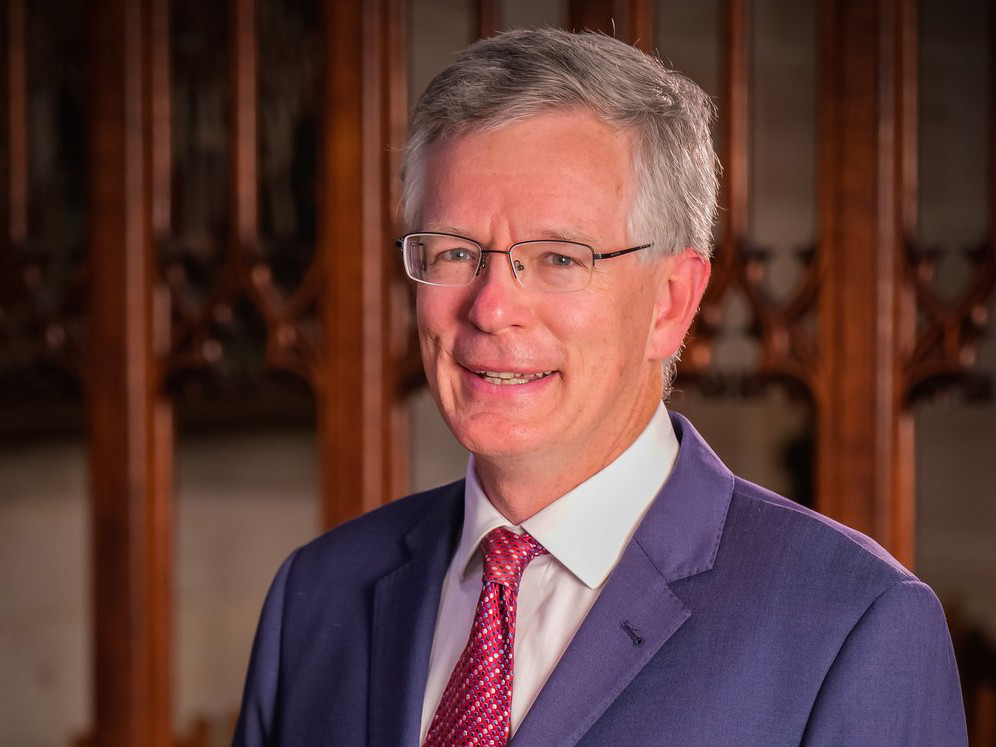Long-time campaigner for poker machine reform, the Dean of Sydney, Sandy Grant, has welcomed a unanimous report from federal Parliament, “You Win Some, You Lose More”. From St Andrew’s Cathedral Sydney, Dean Grant said:
It’s excellent to see a Parliamentary Committee urge removal of sports betting ads that will eventually see a total ban on TV and social media feeds.
We have no idea about Jesus’ attitude to sport. But we know St Paul was a fan, from his many sporting illustrations: running, wrestling and training in general.
But Christians are even clearer that if you see someone in need but have no pity on them, how can the love of God be in you? (See 1 John 3:17!)
Australians lose more than any other nationality on online gambling. Too many go on to experience dreadful harm from online gambling, which is often highly addictive.
Most Aussies have had a gutful of sports bet ads during our favourite matches. And we worry at the exposure of our kids to the normalisation of gambling.
For this reason, I abandoned my support of the Parramatta Eels while ever they retained a sports bet logo on their jerseys.
It’s reprehensible to see the so-called Responsible Wagering lobby say that a total ban would deprive sporting leagues and local broadcasters of “vital funds”.
Surely sports stars do not wish to see their high pay-packets coming at the price of devastating gambling harm.
Australians care about the results in our much-loved Ashes or State of Origin, but know they are far less important than the welfare of ordinary men and women, boys and girls harmed by out-of-control sports betting.
Sporting team work means always looking out for your mate.
At its best, sport is about honest, competitive effort, striving in skill and fitness, never wanting to hurt other people.
So congratulations to all those MPs on the unity ticket calling our federal Parliament to phase out all advertising of online gambling. All the more so, when the evidence suggests that partial bans do not work.
Our Prime Minister should know there is no excuse for failure to implement the findings of this report.There should be little delay in preparing the legislation that’s needed.
Detail
Among many other recommendations, the House of Representatives Standing Committee on Social Policy and Legal Affairs report proposes that:
- All betting ads should be banned from social media, news broadcasts and commercial radio during school pick-up and drop-off.
- Ads and commentary on betting odds are banned during sports broadcasts, including gambling logos on players’ uniforms.
- There should be a broadcast blackout on such advertising from 6 am to 10 pm.
- The final step would see a total ban on all online gambling advertising and sponsorship.
Many would argue that recommendation 16 is just as important to public health: that the Australian Government prohibit all online gambling inducements and inducement advertising and that it do so without delay.
These inducements are often what suck the already entrapped gambler further into the vortex of compulsive use.
The Report’s Foreword, by Committee Chair, Ms Peta Murphy MP, repays reading in full, but here are four salutary paragraphs.
Australians outspend the citizens of every other country on online gambling. This is wreaking havoc in our communities. Saturation advertising ensures our future losses. Only online wagering service providers (WSPs), major sporting organisations and media gain from the status quo. This inquiry heard evidence from gamblers who lost and were encouraged by WSPs to gamble more; and from those who won and were prevented from gambling further. Any business model which encourages harm deserves to be closely scrutinised.
Australians do not like being flooded by messages and inducements to gamble online and worry about the effect this is having on children and young people. Most believe that gambling is harmful for society and that it has become too easy to gamble in Australia. Almost half of Australians surveyed in 2022 placed a bet on sports or racing and about two-thirds of those people are at risk of harm. It is easier now than ever before to lose big with a few taps on a mobile phone.
Online gambling is unlike other forms of entertainment because of its potential to cause psychological, health, relationship, legal and financial harm to individuals and those around them, and tragically, gambling is a key risk factor for suicide. A person’s gambling can progress to the behavioural addiction of gambling disorder, which is like addictions to substances. There are currently few safeguards to protect people with gambling disorder from online gambling harm, and many find it difficult to ask for help because the stigma associated with harm from gambling is silencing. Those who do seek help find it difficult to access appropriate treatment and support.
Australians lose the most to online gambling because we have a weak and fragmented regulatory framework, which places all the onus for reducing harm onto the person who gambles. Despite gambling harm being a major public health issue, we do not treat it like one. Instead, our policies and regulation encourage ‘responsible gambling’, which absolves online WSPs of much of the responsibility for the harm their products cause. There is inconsistency across the states and territories in how online gambling is regulated and there is little incentive for the states and territories to impose tougher regulations, or licensing fees.
Article Source, St Andrews Cathedral,
Image, Sandy Grant, Credit St Andrews Cathedral

